The Music to which Campbell is listening... and who's looking after it?
Campbell is not suggesting you actually listen to any of this yourself. He long ago recognized that his musical tastes are held by him and him alone. He is offering this, I suppose, as statistical information regarding the Fate of the Artist's work.
Music. Who is looking after it?
I'm listening to a cd of sonatas by Philip Heinrich Erlebach (1657-1714). There's a big seven minute ciaconne at the end that convinces me I am a noble fellow, but forget about that. The printed notes tell me that of his 1000 or so attested original works, most were destroyed in a fire at the court library of Rudolstadt in 1735. We're left with approximately seventy pieces. Who was in charge, I asks ya!?

Also to hand is an older cd I just picked up second hand. It's a collection of the songs of Stephen Foster, made simply and beautifully by Thomas Hampson the tenor and Jay Ungar, the violinist whose main claim to fame was the theme tune of the Ken Burns series on the American Civil War. I have the Dover book of reproductions of the sheet music of 40 Foster songs that I used to play a lot on my fiddle. Jeanie with the Light Brown Hair never fails to melt me on the rising figure at 'happy as the daisies', though I am sure the daisies are not so much happy as symbolically wearing their author's good cheer. I always figured that those forty songs were more or less the total of what we have of America's apparent first professional song writer (while logic suggested there ought to be more), but there's a fellow here named Benjamin Robert Tubb who has catalogued approximately 217 items, complete with sound files. On his impressive site he has loads of other stuff by America's nineteenth century tunesmiths. He appears to have arrived at the subject by the same route as Campbell, starting with that Dover book. It's good to know that somebody is minding the store.

This last one I thought had to be a hoax when I came across it early last year. Charlie Parker (last mentioned by me here) and Dizzy Gillespie playing the Town Hall, New York City on june 22 1945 in a legendary concert that nobody knew was even recorded let alone still exists in any form. These two bebop jazz giants played all their earliest innovations during a couple of years when there was a recording strike by the musicians union, so what we have of it is precious to say the least, and much of it is shoddily recorded, not surprising given the equipment that could have been transportable in those days. Now add to that a 40 minute concert in remarkable condition and completeness, and even historical precedecnce: there's a tightly knit and coolly delivered version of A Night in Tunisia here that predates the individual recordings of both Parker and Gillespie of the following year. The notes explain the circuitous route by which the fragile old acetates came to be very recently discovered: "...it was at one of these shows that I met the "picker". A "picker" is a dealer who is constantly searching for the next rarity, looking to quickly turn his finds into cash. 'I just found an acetate of Charlie Parker. I can play it for you over the phone...' He was reluctant to reveal his sources, but did agree to go back to where he had purchased the acetate to see if there were any others. Two days later I received a fax that he had found another six discs! Each disc ended abruptly without an overlap, and I mistakenly interpreted this space in the music to be equal to the time it took to turn the disc over to record the other side. it was only last year that it was determined that this concert had been recorded on two side-by side disc cutters- one taking over where the other left off (without the usual overlap) and that there were no spaces, and there was nothing missing!"
Elsewhere in the voluminous notes the event of the discovery is compared, as these things always are, to the uncovering of the tomb of some guy named Tutankhamen, apparently in 1922.
Survival is somewhat random, what?.
Music. Who is looking after it?
I'm listening to a cd of sonatas by Philip Heinrich Erlebach (1657-1714). There's a big seven minute ciaconne at the end that convinces me I am a noble fellow, but forget about that. The printed notes tell me that of his 1000 or so attested original works, most were destroyed in a fire at the court library of Rudolstadt in 1735. We're left with approximately seventy pieces. Who was in charge, I asks ya!?

Also to hand is an older cd I just picked up second hand. It's a collection of the songs of Stephen Foster, made simply and beautifully by Thomas Hampson the tenor and Jay Ungar, the violinist whose main claim to fame was the theme tune of the Ken Burns series on the American Civil War. I have the Dover book of reproductions of the sheet music of 40 Foster songs that I used to play a lot on my fiddle. Jeanie with the Light Brown Hair never fails to melt me on the rising figure at 'happy as the daisies', though I am sure the daisies are not so much happy as symbolically wearing their author's good cheer. I always figured that those forty songs were more or less the total of what we have of America's apparent first professional song writer (while logic suggested there ought to be more), but there's a fellow here named Benjamin Robert Tubb who has catalogued approximately 217 items, complete with sound files. On his impressive site he has loads of other stuff by America's nineteenth century tunesmiths. He appears to have arrived at the subject by the same route as Campbell, starting with that Dover book. It's good to know that somebody is minding the store.

This last one I thought had to be a hoax when I came across it early last year. Charlie Parker (last mentioned by me here) and Dizzy Gillespie playing the Town Hall, New York City on june 22 1945 in a legendary concert that nobody knew was even recorded let alone still exists in any form. These two bebop jazz giants played all their earliest innovations during a couple of years when there was a recording strike by the musicians union, so what we have of it is precious to say the least, and much of it is shoddily recorded, not surprising given the equipment that could have been transportable in those days. Now add to that a 40 minute concert in remarkable condition and completeness, and even historical precedecnce: there's a tightly knit and coolly delivered version of A Night in Tunisia here that predates the individual recordings of both Parker and Gillespie of the following year. The notes explain the circuitous route by which the fragile old acetates came to be very recently discovered: "...it was at one of these shows that I met the "picker". A "picker" is a dealer who is constantly searching for the next rarity, looking to quickly turn his finds into cash. 'I just found an acetate of Charlie Parker. I can play it for you over the phone...' He was reluctant to reveal his sources, but did agree to go back to where he had purchased the acetate to see if there were any others. Two days later I received a fax that he had found another six discs! Each disc ended abruptly without an overlap, and I mistakenly interpreted this space in the music to be equal to the time it took to turn the disc over to record the other side. it was only last year that it was determined that this concert had been recorded on two side-by side disc cutters- one taking over where the other left off (without the usual overlap) and that there were no spaces, and there was nothing missing!"
Elsewhere in the voluminous notes the event of the discovery is compared, as these things always are, to the uncovering of the tomb of some guy named Tutankhamen, apparently in 1922.

Survival is somewhat random, what?.
Labels: music1
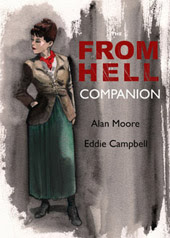
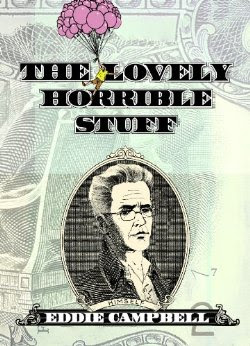

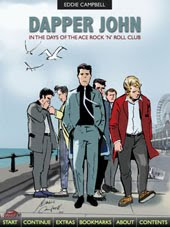
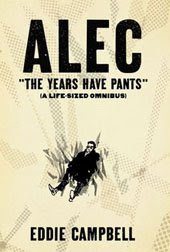
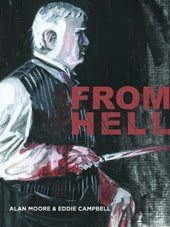
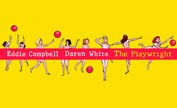
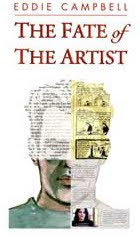
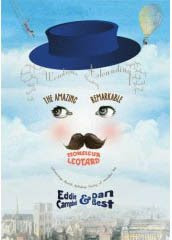
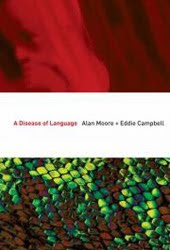
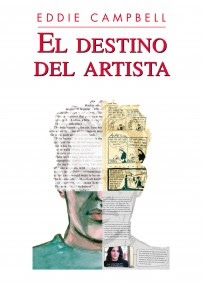
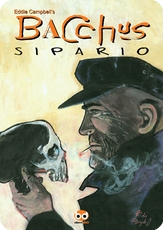
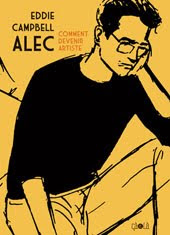

11 Comments:
I know what you mean about survival. I off worry about what I will do when all the LP's and EP's are gone. My Beatles records don't sound the same on CD, and I have some very hard to find bootlegs. Hey, didn't I read that you like punk, too?
"Salt PEAnuts salt PEAnuts!" sez Wee Campbell in the kitchen whilst making tea, stealing an 'obnob and unnerving the office folk.
Good thing you found that recording just before I left. I can listen to it on my iPod. Music of the artist.
My brain is telling me that it did indeed know you played the fiddle, but it's still rather a surprise to me...
(And damn it all, but the anti-robot thingy won't load in FireFox }:{(> )
that girl is a credit to her old man
Shooby doop be-bop, be shooby doop beep, yeah!
Hello Eddie, couldn't resist popping in to say hi. We too are fans of the Nutty Squirrels - at least, the kids just love em!
Impressive blog you have here. Pete and I were also sad to hear of the passing of Harry Horse - our Poppy's a HUGE fan of his work.
Love to Anne and yerself. Hi Hayley too!
Liz (n Pete)
'allo Liz!
I'll be down the hill in about 5 weeks. See you then!
H x
I must have this album...
Picked up Gillespie's "Groovin High" and "The Champ" a few years ago and they're in near-constant rotation. re: Survival. Until the early 1990's, American Jazz genius (and electro-music innovator) Raymond Scott had fallen off the face of the earth. Then John Kricfalusi used Scott's "Toy Trumpet" in one of the Ren & Stimpy shorts. I picked up a copy of his original recordings, "Reckless Nights And Turkish Twilights" and was amazed. Thanks to the good people at Basta Records, much of Scott's work is again available to the public. Great background music for parties, while at the drawing table, or when washing the car.
MUSIC !
I knew something was missing.
Great choices.
Thomas Hampson also recorded a CD of old American concert songs ("An Old Song Resung") which is quite interesting, if only for some of the lyrics...
"I dream of Jeannie with the light brown hair
She's had it dyed to match her underwear"
think that's in a Ronnie Barker sketch or book somewhere
E. Nala
thanks, Nathalie
i checked out an interview with him which i linked to a couple days later.
best
eddie
Post a Comment
Subscribe to Post Comments [Atom]
<< Home